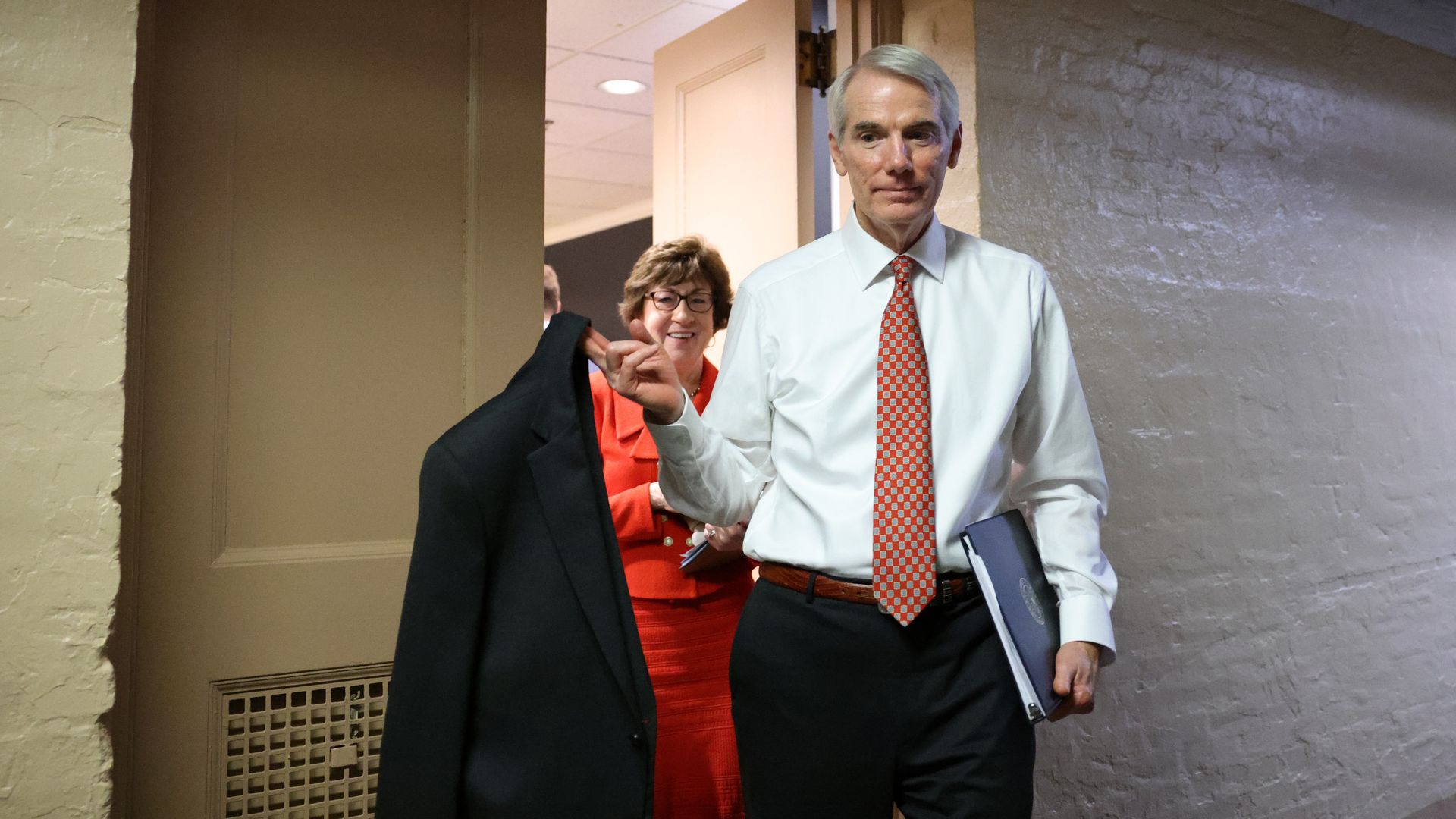| | | | | | | Presented By Amazon | | | | Axios Sneak Peek | | By Alayna Treene and Hans Nichols ·Jul 18, 2021 | | Welcome back to Sneak. We hope you had a great weekend. Smart Brevity™ count: 1,512 words ... 5.5 minutes. Edited by Glen Johnson. | | | | | | 1 big thing: Rich candidates use mystery money |  | | | Illustration: Sarah Grillo/Axios | | | | Wealthy congressional candidates are pouring millions into their own campaigns but failing to file mandatory disclosure forms, keeping voters in the dark about how they got their cash, Axios' Lachlan Markay reports. Why it matters: Unlike regular donors, candidates can give unlimited sums to their campaigns. Watchdogs say knowing the source is crucial to vetting potential conflicts of interest and ensuring hidden supporters won't unduly influence them in office. - Ignoring the law also speaks to a lack of fear of the congressional ethics officials charged with enforcing transparency requirements.
What's happening: In Arizona, Republican Senate candidate Jim Lamon has lent $2 million to his own campaign. He also poured another $2 million into a conservative voter registration group in the state days before he entered the race in early May. - The deadline for Lamon to file his personal financial disclosure form passed about six weeks ago. He has yet to do so or request an extension, according to the Senate Ethics Committee's website.
- Two of his GOP primary rivals, both of whom entered the race after Lamon, have filed their personal financial disclosure statements.
- Lamon is a solar energy executive, but the lack of a financial disclosure filing makes it difficult to know precisely how he derives his current income and what assets he holds.
- His campaign didn't respond to inquiries from Axios.
In North Carolina, House candidate Sandy Smith has lent her campaign $110,000 this year. She ran for the same congressional seat last year and lent the campaign another $325,000. - Smith has not filed personal financial disclosures during either of her House runs.
- She also failed to do so last year during an ill-fated effort to primary Sen. Thom Tillis (R-N.C.).
The big picture: Financial disclosure filings are legally mandatory. "Knowingly and willfully" failing to file can subject candidates to tens of thousands of dollars in fines and disciplinary action from congressional ethics officials. What they're saying: "Voters may question whether candidates seek office to serve personal interests or the public's interest if they are not transparent from the start," said Kedric Payne, the general counsel and senior director for ethics at the Campaign Legal Center. Keep reading. |     | | | | | | 2. Warren targets racist place names |  | | | The East Chinaman Spring in Yellowstone National Park. Photo: Jon G. Fuller/VW PICS/Universal Images Group via Getty Images | | | | A new congressional bill seeks to create a board to help rename more than 1,000 towns, lakes, streams, creeks and mountain peaks across the U.S. still named with racist slurs, Axios' Russell Contreras reports. Why it matters: About 621 places have the word "negro" in them. New Mexico is home to a reservoir called Wetback Tank. The U.S. Board on Geographic Names oversees all naming decisions, but critics contend it's overwhelmed and slow to rename places despite public pressure. Driving the news: The Reconciliation in Place Names Act, introduced Friday by Rep. Al Green (D-Texas) and Sen. Elizabeth Warren (D-Mass.), would create an advisory board made of civil rights advocates and tribal members. - The board would accept proposals from tribal nations, state and local governments and the public on suggested name changes.
- The advisory board would then make recommendations to the U.S. Board on Geographic Names, the agency running the process for name changes.
- Critics contend it isn't transparent. A government link exists where people can suggest name changes yet gives scant details on names' status.
By the numbers: The database maintained by the U.S. Board on Geographic Names shows there are 799 sites containing the word "squaw" — a derogatory term for Native American women. - The places using "negro" include Big Negro Creek in Warren, Illinois — and Negro Foot, Virginia, an unincorporated community said to have been named in reference to an enslaved person whose foot was amputated to prevent escape.
- Twenty-nine places contain the word "Chinaman" — an offensive term describing Chinese American men. They include Chinaman Hat in Wasco County, Oregon, and Chinamans Canyon in Las Animas County, Colorado.
- In addition to Wetbank Tank reservoir in New Mexico's Sierra County, there are 12 places around the country with the term "greaser." Both are epithets used to describe Mexican Americans.
What they're saying: "We need to immediately stop honoring the ugly legacy of racism and bigotry, and that's why I'm introducing the Reconciliation in Place Names Act with my colleagues," Warren said in a statement. - "This is about ending egregious expressions of systemic racism and bigotry and taking a step toward dismantling white supremacy in our economy and society. It's about building an America that lives up to its highest ideals."
|     | | | | | | 3. GOP joins Dems in taking on Big Pharma |  | | | Sen. Bill Cassidy appears today on "Fox News Sunday." Via @atrupar/Twitter | | | | Senators working to keep the bipartisan infrastructure deal alive are zeroing in on Medicare prescription drug rebate formulas to offset up to $60 billion of the $1.2 trillion package, people familiar with the matter tell Axios' Hans Nichols. Why it matters: Targeting those funds puts the bipartisan infrastructure plan in competition with the $3.5 trillion, Democrat-only plan proposed by Sen. Bernie Sanders (I.-Vt.). It also assumes new money from altering complicated prescription drug formulas. - Bipartisan negotiators are looking at drug payments after Republicans backtracked on additional funding for the IRS, a move that would have raised an estimated $60 billion.
- One source familiar with the negotiations cautioned that the final amount could be less than the $60 billion the bipartisan group thinks it can get from stepped-up IRS enforcement.
- A conservative group, led by Marc Short, chief of staff for former Vice President Mike Pence, targeted GOP lawmakers for considering adding financing to IRS enforcement efforts. It's now dead in the bipartisan talks.
- Democrats plan to revive it in their reconciliation package and seek an $80 billion IRS boost.
Driving the news: Senate Majority Leader Chuck Schumer (D-N.Y.) plans to force a preliminary vote on the bipartisan package Wednesday, but the so-called Group of 20 behind the measure is struggling with how to pay for their "hard" infrastructure plans. - "We're competing with their $3.5-trillion plan. They want everything reasonable on their side, not helping us," Sen. Bill Cassidy (R-La.) said, referring to Sanders' plan, on "Fox News Sunday."
- "I just don't know how you have a cloture vote when you don't have the bill written, when you don't have the pay-fors established," said Cassidy.
The big picture: Both the bipartisan bill and the $3.5 trillion reconciliation bill face significant obstacles. - Democrats have no margin for error in the Senate, and key centrists, like Sens. Joe Manchin (D-W. Va.) and Kyrsten Sinema (D-Ariz.), haven't publicly endorsed the $3.5 trillion cost of the reconciliation bill.
- Republicans in the G20 who say they support the bipartisan deal, which includes $579 billion in new money for traditional infrastructure, could get cold feet if the Democrat-only bill gets too big. Their concern: too much spending in one year.
Go deeper: Sanders is looking at prescription drug formulas for two pots of money, which he expects will raise more than $600 billion, Axios reported last Thursday. Keep reading. |     | | | | | | A message from Amazon | | See what making $15+/hr means to Amazon employees | | |  | | | | Before working at Amazon, Leonardo was making $9 an hour at a car wash. Now he makes more than $15 an hour and is able to help his family. What this means: Amazon employees have seen the difference that making at least $15 an hour can have. Get more details. | | | | | | 4. Portman hits Schumer for infrastructure deadline |  | | | Sen. Rob Portman. Photo: Anna Moneymaker/Getty Images | | | | Sen. Rob Portman (R-Ohio) criticized Schumer today for setting an "arbitrary deadline" to move forward with the bipartisan proposal, Axios' Alayna Treene reports. Why it matters: Portman is a key Republican negotiator, yet Senate leadership aides tell Axios that Schumer won't back away from beginning procedural steps to move the bill — still unwritten — forward this week, Axios' Alayna Treene reports. - Schumer is racing against the clock to pass the pair of infrastructure bills before the August recess — and ensuring the bipartisan bill sees floor action this week is necessary for the Senate to meet its self-imposed deadline.
- Schumer's team has made clear the vote the leader has scheduled for Wednesday is solely on the vehicle for moving the measure, not the contents of the bill itself.
What they're saying: "We are still negotiating," Portman said on CNN's "State of the Union." "(L)ater today, we will be having additional negotiations with the Republicans and Democrats who have come together to put this bill into a track that's very unusual for Washington." - "Chuck Schumer, with all due respect, is not writing the bill, nor is (Senate Minority Leader) Mitch McConnell, by the way. So, that's why we shouldn't have an arbitrary deadline of Wednesday. We should bring the legislation forward when it's ready."
A senior Senate Democratic aide told Axios: "There's ample time and no reason why the bipartisan group can't come to an agreement by Wednesday." - The Senate has done this before, the aide added, pointing to the China-focused "U.S. Innovation and Competition" bill.
- During that process, there wasn't an agreement on legislation, but senators kicked off the process anyway by moving to proceed on the Endless Frontier Act.
- Members knew it was a substitute while they negotiated the final bill.
The bottom line: The bipartisan group is hoping to get final text of the bill completed by the time the Senate reconvenes Monday night. - Talks are going well, sources familiar with the negotiations tell Axios, but it's always the final stretch that's the hardest to complete.
Keep reading. |     | | | | | | 5. Pic du jour |  | | | Photo: Guido Bergmann/Bundesregierung via Getty Images | | | | The German Government Press Office shared this image of President Biden and German Chancellor Angela Merkel after their visit last week. |     | | | | | | A message from Amazon | | Independent study: Spillover effects of Amazon's wage increase | | |  | | | | New research shows that Amazon's wage increase to $15 an hour directly benefited wages for other non-Amazon workers in those communities. The report also found that their increase of wages to $15 did not result in widespread job loss. Learn more. | | | | 📬 Thanks for reading. A reminder your family, friends and colleagues can subscribe to this or any of Axios' other free newsletters by clicking here. |  | | It'll help you deliver employee communications more effectively. | | | | | | Axios thanks our partners for supporting our newsletters. If you're interested in advertising, learn more here.
Sponsorship has no influence on editorial content. Axios, 3100 Clarendon Blvd, Suite 1300, Arlington VA 22201 | | | You received this email because you signed up for newsletters from Axios.
Change your preferences or unsubscribe here. | | | Was this email forwarded to you?
Sign up now to get Axios in your inbox. | | | | Follow Axios on social media:    | | | | | |
No comments:
Post a Comment